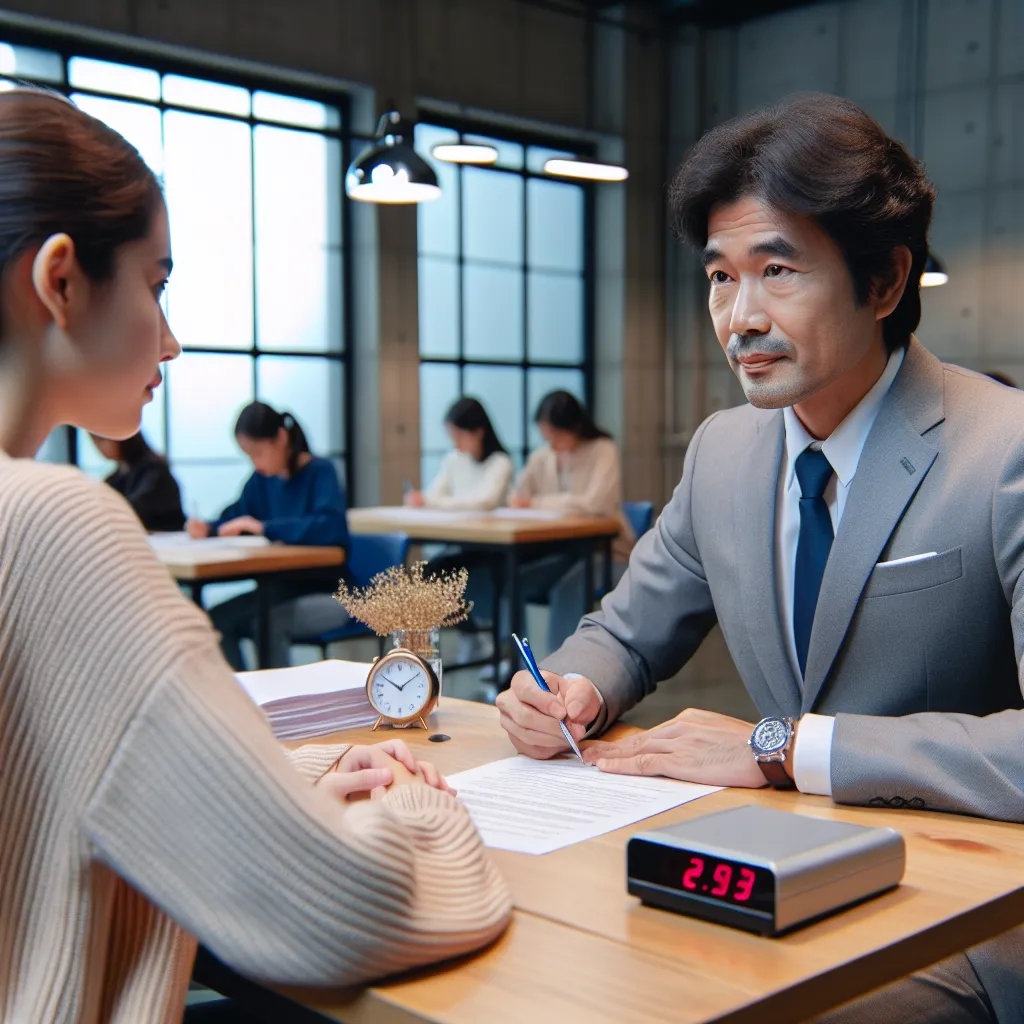The IELTS Speaking test often includes questions about personal characteristics and behaviors. One common topic that candidates may encounter is describing someone who remains calm under pressure. This article will guide you through answering such questions effectively, providing sample responses for different band scores and offering valuable tips to help you excel in your IELTS Speaking exam.
Nội dung bài viết
 Calm person under pressure
Calm person under pressure
Part 1: Introduction and Interview
In this section, the examiner may ask you some general questions related to staying calm under pressure. Here are some potential questions and sample answers:
- Do you consider yourself a calm person?
- How do you usually react in stressful situations?
- Do you know anyone who stays calm under pressure?
Let’s focus on the third question:
Question: Do you know anyone who stays calm under pressure?
Band 6-7 Answer:
Yes, I do. My friend John is really good at staying calm when things get stressful. He works in a busy hospital and always seems to keep his cool, even when there’s a lot going on. I’ve noticed that he takes deep breaths and speaks slowly when he’s under pressure, which helps him stay focused.
Band 8-9 Answer:
Absolutely. I have a colleague, Sarah, who epitomizes composure under pressure. As a senior project manager in our fast-paced tech company, she consistently demonstrates remarkable poise in high-stakes situations. What I find particularly admirable is her ability to maintain a level-headed approach even when faced with tight deadlines or unexpected challenges. She has this innate talent for diffusing tension in the team and steering conversations towards constructive solutions. It’s truly inspiring to witness her calm demeanor in action.
Part 2: Long Turn (Cue Card)
Here’s a sample cue card related to the topic:
Describe a person who always stays calm under pressure.
You should say:
- Who this person is
- How you know this person
- What kind of situations this person faces
- And explain why you think this person stays calm under pressure
Band 6-7 Answer:
I’d like to talk about my uncle, Tom, who always stays calm under pressure. He’s been a firefighter for over 20 years, and I’ve known him all my life. As a firefighter, he often faces dangerous situations where he needs to rescue people from burning buildings or help in other emergencies.
I think he stays calm because of his experience and training. He’s been doing this job for a long time, so he knows how to handle difficult situations. Also, he told me that he always focuses on what needs to be done rather than worrying about the dangers. This helps him stay level-headed and make good decisions.
His calmness is really impressive. Even when he talks about his work, he never seems stressed or scared. I remember once when there was a small fire in our kitchen, everyone was panicking, but he calmly put it out and made sure we were all safe. It’s like he has a special ability to keep cool no matter what’s happening around him.
Band 8-9 Answer:
I’d like to describe my mentor, Dr. Elizabeth Chen, who exemplifies remarkable composure under pressure. As a renowned neurosurgeon at our city’s leading hospital, she consistently demonstrates an extraordinary ability to remain calm in high-stress situations.
I first met Dr. Chen during my medical residency three years ago, and I’ve had the privilege of observing her in action numerous times since then. The situations she faces are often life-and-death scenarios where split-second decisions can have profound consequences. She regularly performs complex brain surgeries, manages medical crises in the ER, and coordinates responses to large-scale emergencies.
What’s truly fascinating is the way Dr. Chen maintains her equanimity in these intense moments. I believe her calmness stems from a combination of factors. Firstly, her extensive experience and expertise provide a solid foundation of confidence. She’s encountered a wide array of challenging cases over her 25-year career, which has honed her ability to navigate stressful situations with ease.
Secondly, Dr. Chen has cultivated a mindset of focused presence. She often speaks about the importance of staying fully engaged in the present moment, rather than getting caught up in anxiety about potential outcomes. This approach allows her to channel all her mental resources into the task at hand, resulting in clearer thinking and more effective decision-making.
Lastly, I’ve noticed that she has developed specific techniques to modulate her stress response. For instance, she practices controlled breathing exercises between surgeries and employs visualization techniques to prepare for complex procedures. These strategies seem to help her maintain a state of calm alertness, even in the most pressurized situations.
Dr. Chen’s ability to stay calm under pressure not only enhances her own performance but also has a profound impact on her team. Her composure is contagious, creating a focused and efficient working environment that ultimately benefits patient care. Observing her has been incredibly inspiring and has taught me valuable lessons about maintaining poise in challenging circumstances.
Follow-up Questions
- How does this person’s calmness affect others around them?
- Do you think staying calm under pressure is a natural trait or can it be learned?
Band 6-7 Answer (Question 1):
I think my uncle’s calmness has a positive effect on others. When he’s calm, it helps other firefighters feel more confident. People trust him because he doesn’t panic. His calmness can also help victims feel safer when they’re being rescued.
Band 8-9 Answer (Question 1):
Dr. Chen’s composure has a profoundly positive ripple effect on those around her. Her calmness acts as an anchor for the entire medical team, fostering a sense of confidence and focus even in high-pressure situations. This tranquil influence significantly reduces stress levels among staff, leading to improved communication and more effective teamwork. Moreover, patients and their families often draw comfort and reassurance from her serene demeanor, which can contribute to better overall outcomes and a more positive hospital experience.
Part 3: Two-way Discussion
In this section, the examiner will ask more abstract questions related to the topic. Here are some potential questions and sample answers:
Question: Do you think modern society puts too much pressure on people?
Band 6-7 Answer:
Yes, I think modern society does put a lot of pressure on people. There are high expectations in work and personal life. People often feel they need to be successful in their careers, have a perfect family, and look good on social media. This can be really stressful and make it hard for people to relax and enjoy life.
Band 8-9 Answer:
I believe that modern society indeed exerts considerable pressure on individuals, often to an excessive degree. This pressure manifests in various aspects of life, from professional achievements to personal relationships and even our online personas. The relentless pursuit of success, coupled with the constant connectivity enabled by technology, has created an environment where many people feel they must be “on” and performing at their peak 24/7.
This pervasive pressure can have detrimental effects on mental health and overall well-being. We’re seeing rising rates of stress-related illnesses, burnout, and anxiety disorders, which I believe are directly linked to these societal expectations. Moreover, the comparison culture fueled by social media often leads to unrealistic standards and a sense of inadequacy.
However, it’s worth noting that this pressure isn’t entirely negative. In some cases, it can drive innovation and personal growth. The key lies in finding a balance and developing resilience and coping mechanisms to navigate these pressures healthily. As a society, we need to foster a culture that values well-being alongside achievement and recognizes that true success encompasses more than just external markers of accomplishment.
Key Vocabulary and Phrases for High Scores
-
Epitomize /ɪˈpɪtəmaɪz/ (verb): to be a perfect example of something
Example: Her calm demeanor epitomizes grace under pressure. -
Composure /kəmˈpoʊʒər/ (noun): the state of being calm and in control of your feelings or behavior
Example: He maintained his composure even when faced with difficult questions. -
Equanimity /ˌekwəˈnɪməti/ (noun): calmness and composure, especially in a difficult situation
Example: The surgeon’s equanimity in the operating room was remarkable. -
Poise /pɔɪz/ (noun): calm confidence in a person’s way of behaving, or a quality of grace and balance in the way a person holds or moves their body
Example: Her poise during the crisis impressed everyone in the room. -
Diffuse tension (phrase): to reduce or eliminate stress or conflict in a situation
Example: His ability to diffuse tension with humor made him an excellent mediator.
Examiner’s Advice
To score high in the IELTS Speaking test when describing a calm person under pressure:
- Use a variety of advanced vocabulary and idiomatic expressions related to calmness and pressure.
- Provide specific examples and personal anecdotes to illustrate your points.
- Discuss the topic from different perspectives, showing depth of thought.
- Use complex sentence structures and cohesive devices to connect your ideas smoothly.
- Practice speaking on this topic beforehand, focusing on fluency and pronunciation.
Remember, the key to success in the IELTS Speaking test is not just about knowing the language, but also about expressing your ideas clearly and confidently. Regular practice and exposure to English will help you achieve this goal.
For more tips on IELTS Speaking, you might find it helpful to read about how to describe a person who is good at organizing events. Many of the strategies for describing skills and personal qualities can be applied to our topic of describing a calm person under pressure as well.

